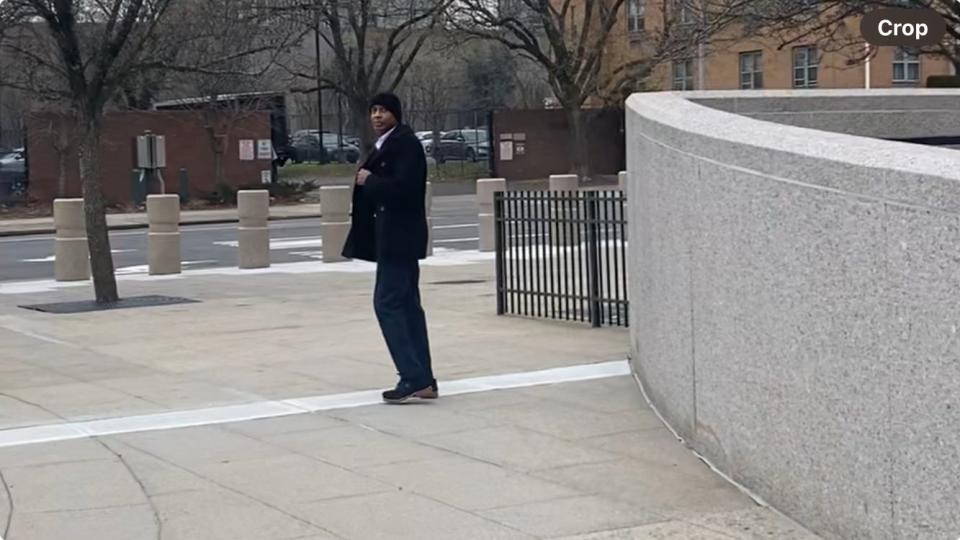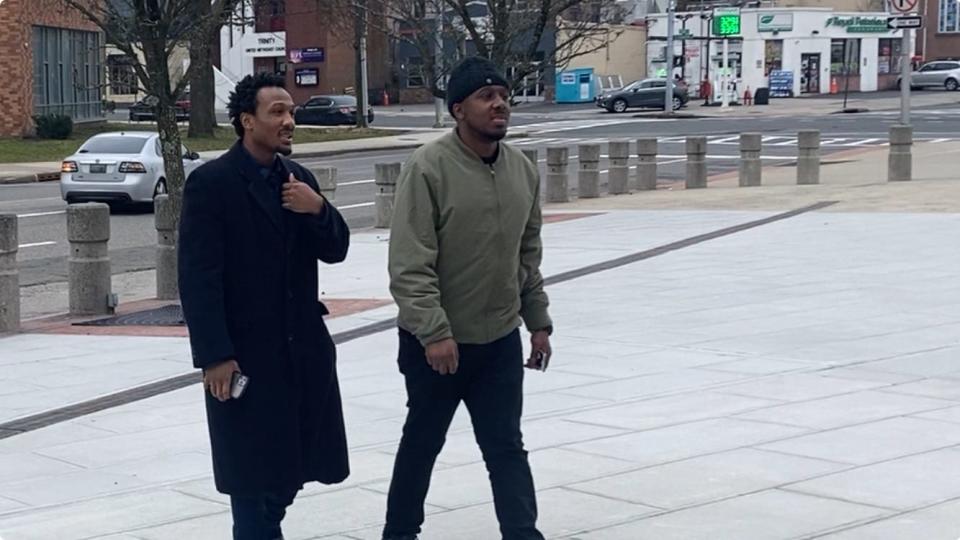Mount Vernon fire captain explains at trial how he got $30K in pandemic relief grants
Mount Vernon Fire Captain Rodney Samson and his two children didn't own businesses and didn't have any employees.
But he detailed Thursday in U.S. District Court in White Plains how they managed to get $30,000 in pandemic-relief grants that required each to own a company with at least 10 workers.
Samson testified at the trial of Quadri and Anwar Salahuddin, the sons of his longtime colleague, retired Fire Chief Al-Farid Salahuddin, and Jacob Carter, who are charged with conspiracy to commit wire fraud, wire fraud and aggravated identity theft in a $7.6 million scheme.

Carter and the Salahuddin brothers are accused of filing more than 1,000 fraudulent applications with the Small Business Administration's Economic Injury Disaster Loan program in the spring and summer of 2020 as the agency was trying to infuse small companies with the cash they needed to stay afloat.
Using pedigree information provided by relatives, friends, colleagues and others, the defendants allegedly got hundreds of people the maximum amount for businesses and employees that did not exist and then took $3,000 or $4,000 from each as an application fee.
Unlike larger loans that the program offered, the grants of $1,000 per employee up to 10 employees did not have to be repaid.
A review of SBA data by The Journal News/lohud data during the pandemic showed that more than 400 Mount Vernon residents, including dozens of firefighters and other city employees, had received the maximum grant using only their name with no clear evidence they ran qualifying businesses. A city union official, Andrea Ayers, and her daughter Alicia, are awaiting sentencing after pleading guilty to a similar effort in which $1.8 million was paid out.
It was a pattern repeated across the country. The SBA's Office of Inspector General estimated last year that there was more than $200 billion in fraudulent EIDL loans and Paycheck Protection Program loans paid out by the agency.
Samson said he first learned of the EIDL program while the chief and several firefighters were discussing it one day in 2020. Several parameters for getting the money were described and he was told Quadri Salahuddin was handling the online applications. He said he went to the chief later and got Quadri's phone number.
"It was my understanding I was almost guaranteed it as a firefighter by being a first responder," he told Assistant U.S. Attorney Courtney Heavey.
Soon, he said, he provided Quadri with his details, including bank account and routing numbers. He said he had been hesitant to provide his Social Security number but that Quadri insisted the information would eventually be deleted once the process was complete.
Within days he was notified the application was approved and a few days later the $10,000 arrived. He then sent Quadri $3,000 of it.
He also provided the pedigree information for his daughter, who worked in a doctor's office, and his son, a college student who worked part-time in a pharmacy. He thought they qualified because their work exposed them to COVID-19. Both got the $10,000 grants. His wife, who worked at a group home for kids, also had an application submitted, he said, but she did not receive the money.
Samson said he never claimed to have a business or employees and never told anyone to fill out an application saying otherwise. The application that got him the money indicated he had an agricultural business with 15 workers.
The 50-year-old captain testified under a non-prosecution agreement with the government that called for him not to face fraud charges if he told the truth in court.

Samson said he had had Quadri as a student years earlier when he was a substitute teacher and would see him over the years when he visited his father at the firehouse.
He said all their dealings with the applications were conducted over the phone. That may be why he misidentified him in court. He seemed confident when describing the green jacket he was wearing and his close cropped hair. But that was Anwar, 10 years older than his brother, who was sitting next to Quadri.
The three defendants are representing themselves. The Salahuddins had no questions for Samson. Carter's cross examination focused on how the fire captain had never met Carter and had no knowledge of his involvement in the grant applications. And he asked him to repeat his identification of Quadri Salahuddin. Once again, Samson picked out Anwar.
Carter also asked Samson if he was the victim of identity theft. U.S. District Judge Nelson Roman sustained Heavey's objection that the question called for a legal conclusion.
"Have you had your identity stolen?" Carter asked.
"No," Samson replied.
At no point in his testimony was Samson asked whether he was ever directed to return the money he hadn't been qualified for.
That question was left to a reporter to ask outside the courthouse afterwards. Samson walked away without answering.
This article originally appeared on Rockland/Westchester Journal News: Mount Vernon NY fire captain explains at trial how he got $30K in grants

